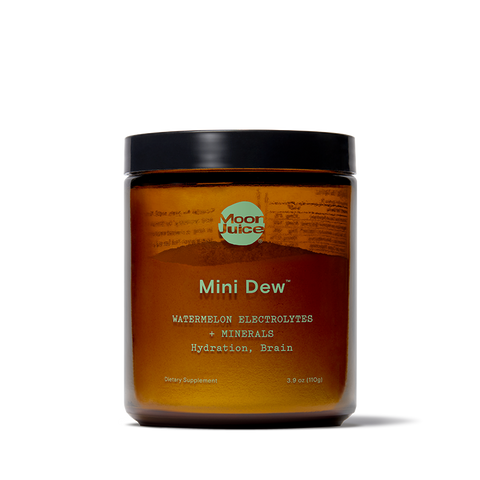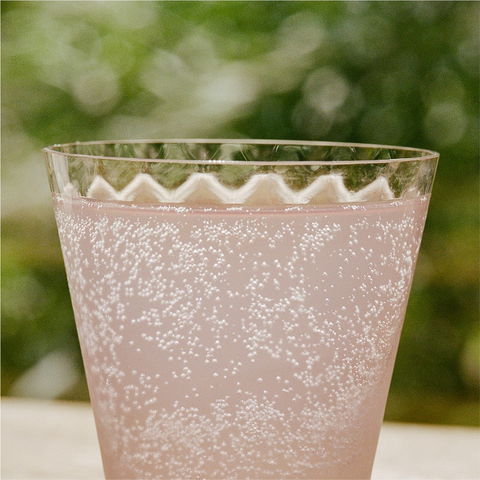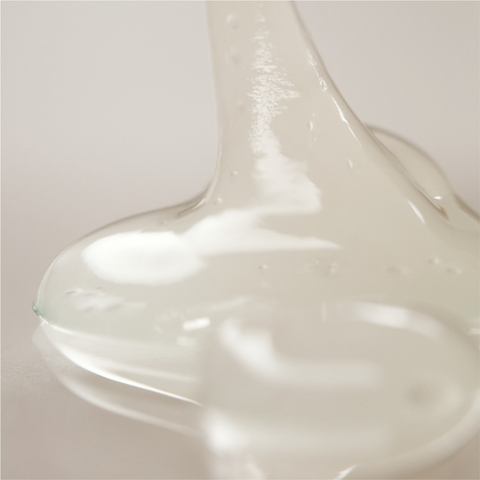When you’re always on the go, it can be easy to forget about one of your body’s most essential needs: hydration. And while drinking water might quench your thirst, optimal hydration requires more than simple H2O.
The right balance of electrolytes—including salt in water for hydration—helps power everyday functions, from muscle contractions to nerve and cognitive function.
Below, we discuss the benefits of adding salt to water for hydration and how to ensure the right balance of electrolytes to keep your mind and body functioning at their best.
How Does Salt in Water Hydrate You?
Sodium is one of seven essential types of electrolytes for daily functioning. When dissolved in water or body fluids, such as the bloodstream, electrolytes produce an electric charge. These essential minerals help keep your body’s electrical systems running—like the neurons firing in your brain.
Water is the foundation of all cellular life, helping to transport essential elements, like oxygen and nutrients, throughout your body.
Water helps you stay hydrated by:
- Supporting a healthy pH
- Ensuring optimal fluid balance in and around cells and throughout your body
- Moving waste out of your cells
- Keeping bones and teeth healthy
- Maintaining nerve function, heart rhythm, and blood pressure
Sodium, in particular, helps your body maintain fluid and blood volume to keep you hydrated. It’s also responsible for maintaining the volume of extracellular fluid (fluid that surrounds all cells in your body).
Maintaining extracellular fluids encourages the circulation of oxygen, nutrients, and other substances necessary for body function.
An electrolyte imbalance can affect your body's normal functioning and can show up as health issues like:
- Hyponatremia (low sodium levels)
- Hypernatremia (high sodium levels)
- Hypomagnesemia (low magnesium levels)
- Hypokalemia (low potassium levels)
- Hypocalcemia (low calcium levels)
Fixing an electrolyte imbalance isn’t only beneficial during a heat wave or after a challenging workout. You can benefit from taking electrolytes for hydration before you become depleted and before strenuous exercise or other sweaty endeavors.
Staying hydrated helps with the following:
- Enhances cognitive performance and mood: According to a 2020 randomized control trial, 500 milliliters (mL) of fresh water helped improve cognitive function and mood in young adults.
- Improves memory, attention, and reaction time: A small 2019 study revealed that rehydration with 1,500 mL of purified water after a 36-hour fast improved short-term memory, attention, and reaction time.
- Improves physical performance: According to a 2021 study, hydration plays a crucial role in athletic performance, injury prevention, and recovery for people who engage in competitive sports.
- Boosts skin health: In an older 2015 study, researchers suggested that a higher water intake encourages deep skin hydration.
- Maintains blood pressure: According to a 2023 study, drinking 6 to 8 cups of plain water a day was associated with a lower risk of hypertension.
- Regulates body temperature: Water acts as a thermoregulator, distributing heat and cooling your body through perspiration (sweating).
What is the Best Salt to Add to Water?
Himalayan salt is the best salt to add to water for hydration. Not only are there a plethora of health benefits of Himalayan salt, but it contains a high amount of trace minerals which the body needs to operate optimally. This rock salt is extracted from the Khewra Salt Mine in Pakistan and is a natural and healthier alternative to regular table salt.
According to a 2020 study, there are higher levels of minerals such as Calcium, Iron, Magnesium, Manganese, Potassium, Aluminum, Barium, Silicon, and Sulfur compared to table salt. Himalayan salt mineral content also shows lower levels of sodium than table salt.
Anecdotally, some people suggest that sole water has health benefits. Sole water is pink Himalayan salt mixed with distilled or filtered water. However, there’s limited evidence to back these claims that drinking this specific salt water recipe is beneficial for the body.
Celtic sea salt is another salt you can add to water. When comparing Himalayan salt to Celtic sea salt, they both tend to be less processed than table salt and contain small amounts of trace minerals like Sodium, Magnesium, Calcium, and Potassium. Like Himalayan salt, Celtic sea salt has alleged health benefits related to hydration, and some say it can help improve overall water intake.
However, the best and easiest way to safely increase the salt content of your water is to use an essential electrolyte powder mix.
How to Add Salt to Your Water for Hydration
There’s no specific expert recommendation for the correct ratio of salt to water for hydration benefits. However, adding a small amount of salt, such as 1/16 of a teaspoon, to an 8- to 12-ounce glass of water may help with hydration and electrolyte balance.
According to the U.S. Food and Drug Administration (FDA), the daily recommended amount of sodium intake (RDA) for adults is less than 2,300 milligrams (mg)—or about 1 teaspoon (tsp) of table salt.
Below is the daily recommended intake for other essential electrolytes:
- Potassium: 4,700 mg
- Chloride: 2,300 mg
- Magnesium: 420 mg
- Calcium: 1,300 mg
- Phosphate: 1,250 mg
It’s important to avoid exceeding the recommended daily amount of sodium. Consuming excess sodium can lead to health issues over time.
Sign Up, Nerd Out
Get wellness tips, education, and recipes
delivered straight to your inbox.
Get wellness tips, education,
and recipes delivered
straight to your inbox.
Proper Hydration With Mini Dew
Maintaining the right fluid balance doesn’t have to be complicated. And you don’t need to wait until you’re sweaty to add electrolytes to water.
Starting your day or workout dehydrated can lead to decreased athletic performance, brain fog, and fatigue. Prioritizing consistent hydration can help you feel and do your best.
Mini Dew™ is a 2-in-1 electrolyte and mineral powder for optimal hydration and brain function. The pink salt electrolyte mix contains ionic trace minerals and Himalayan Pink Salt harvested from ancient sea beds in Pakistan.
The electrolyte drink powder instantly dissolves in water and contains zero sugar. Mix 1 tsp in 12 oz of water daily to support daily wellness and whenever you need to replenish electrolytes.
Sources:
- CDC. About sodium and health. https://www.cdc.gov/salt/about/index.html#
- FDA. Daily value on the nutrition and supplement facts labels. https://www.fda.gov/food/nutrition-facts-label/daily-value-nutrition-and-supplement-facts-labels
- Mayo Clinic. Does Celtic sea salt have health benefits? https://mcpress.mayoclinic.org/nutrition-fitness/the-health-benefits-of-celtic-sea-salt/
- CDC. Effects of sodium and potassium. https://www.cdc.gov/salt/sodium-potassium-health/index.html#
- NCBI. Electrolytes. https://www.ncbi.nlm.nih.gov/books/NBK541123/#
- Fayet-Moore F, et al. An analysis of the mineral composition of pink salt available in Australia. https://www.ncbi.nlm.nih.gov/pmc/articles/PMC7603209/
- MedlinePlus. Fluid and electrolyte balance. https://medlineplus.gov/fluidandelectrolytebalance.html
- Judge LW, et al. Hydration to maximize performance. https://www.ncbi.nlm.nih.gov/pmc/articles/PMC8336541/
- Li S, et al. Association between plain water intake and risk of hypertension: Longitudinal analyses from the China Health and Nutrition Survey. https://www.ncbi.nlm.nih.gov/pmc/articles/PMC10807041/
- Palma L, et al. (2015). Dietary water affects human skin hydration and biomechanics. https://www.ncbi.nlm.nih.gov/pmc/articles/PMC4529263/
- Pohl HR, et al. Sodium and potassium in health and disease. https://www.researchgate.net/publication/259956980_Sodium_and_Potassium_in_Health_and_Disease
- Roumelioti ME, et al. Fluid balance concepts in medicine: Principles and practice. https://www.ncbi.nlm.nih.gov/pmc/articles/PMC5760509/#
- FDA. Sodium in your diet. https://www.fda.gov/food/nutrition-education-resources-materials/sodium-your-diet#
- ChallengeMe. The importance of hydration. https://www.maine.gov/mdot/challengeme/topics/2020/06Jun/#
- Loma Linda University Health. Why are people adding salt to their water for hydration. https://news.llu.edu/health-wellness/why-are-people-adding-salt-their-water-for-hydration#
- Zhang N, et al. Effects of dehydration and rehydration on cognitive performance and mood among male college students in Cangzhou, China: A self-controlled trial. https://www.ncbi.nlm.nih.gov/pmc/articles/PMC6603652/
- Zhang J, et al. Different Amounts of Water Supplementation Improved Cognitive Performance and Mood among Young Adults after 12 h Water Restriction in Baoding, China: A Randomized Controlled Trial (RCT). https://www.ncbi.nlm.nih.gov/pmc/articles/PMC7662706/
Sources
- CDC. About sodium and health https://www.cdc.gov/salt/about/index.html#
- FDA. Daily value on the nutrition and supplement facts labels. https://www.fda.gov/food/nutrition-facts-label/daily-value-nutrition-and-supplement-facts-labels
- Mayo Clinic. Does Celtic sea salt have health benefits? https://mcpress.mayoclinic.org/nutrition-fitness/the-health-benefits-of-celtic-sea-salt/
- CDC. Effects of sodium and potassium. https://www.cdc.gov/salt/sodium-potassium-health/index.html#
- NCBI. Electrolytes. https://www.ncbi.nlm.nih.gov/books/NBK541123/#
- Fayet-Moore F, et al. An analysis of the mineral composition of pink salt available in Australia. https://www.ncbi.nlm.nih.gov/pmc/articles/PMC7603209/
- MedlinePlus. Fluid and electrolyte balance. https://medlineplus.gov/fluidandelectrolytebalance.html
- Judge LW, et al. Hydration to maximize performance. https://www.ncbi.nlm.nih.gov/pmc/articles/PMC8336541/
- Li S, et al. Association between plain water intake and risk of hypertension: Longitudinal analyses from the China Health and Nutrition Survey. https://www.ncbi.nlm.nih.gov/pmc/articles/PMC10807041/
- Palma L, et al. (2015). Dietary water affects human skin hydration and biomechanics. https://www.ncbi.nlm.nih.gov/pmc/articles/PMC4529263/
- Pohl HR, et al. Sodium and potassium in health and disease. https://www.researchgate.net/publication/259956980_Sodium_and_Potassium_in_Health_and_Disease
- Roumelioti ME, et al. Fluid balance concepts in medicine: Principles and practice. https://www.ncbi.nlm.nih.gov/pmc/articles/PMC5760509/#
- FDA. Sodium in your diet. https://www.fda.gov/food/nutrition-education-resources-materials/sodium-your-diet#
- ChallengeMe. The importance of hydration. https://www.maine.gov/mdot/challengeme/topics/2020/06Jun/#
- Loma Linda University Health. Why are people adding salt to their water for hydration. https://news.llu.edu/health-wellness/why-are-people-adding-salt-their-water-for-hydration#
- Zhang N, et al. Effects of dehydration and rehydration on cognitive performance and mood among male college students in Cangzhou, China: A self-controlled trial. https://www.ncbi.nlm.nih.gov/pmc/articles/PMC6603652/
- Zhang J, et al. Different Amounts of Water Supplementation Improved Cognitive Performance and Mood among Young Adults after 12 h Water Restriction in Baoding, China: A Randomized Controlled Trial (RCT). https://www.ncbi.nlm.nih.gov/pmc/articles/PMC7662706/














